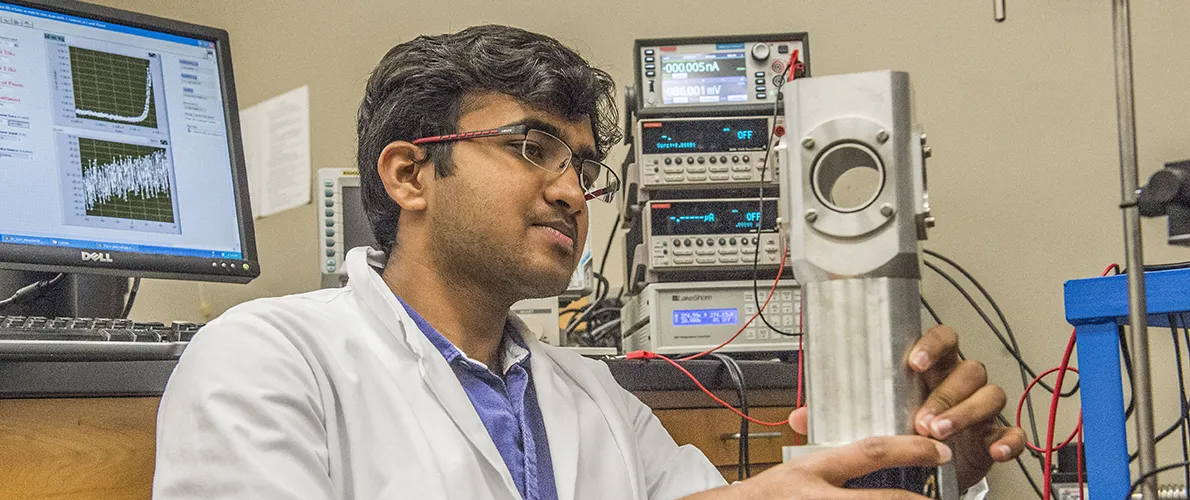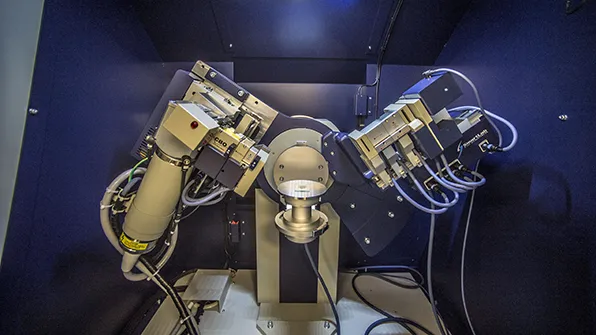Main Content
Doctor of Philosophy in Applied Physics

Our doctoral program emphasizes advanced studies and research in diverse fields, including materials, nanoscience, quantum computing, and biomedical physics. The low student-to-faculty ratio of the program ensures that students receive individualized mentoring from the program’s faculty, creating an educational environment designed to support success.
The goal of the program is to cultivate highly-skilled researchers capable of independent investigations in specific sub-fields, meeting the demands of academia, industry, and government. Graduates gain a broad knowledge of physics fundamentals and specialized expertise relevant to real-world applications.
A doctorate in applied physics can lead to many different careers, including research and development, teaching, and government or private research. Some careers that require a doctorate in physics include: research scientist, materials developer, biomedical researcher, theoretical physicist, laser specialist, and so much more.
Degree Requirements
The Ph.D. in Applied Physics degree requires students to complete at least 54 credits hours of graduate-level physics coursework, pass the physics comprehensive examinations, and write a dissertation based on original research done under the supervision of a physics faculty member.
Dissertation
Students in the Applied Physics PhD program are required to complete original research under the guidance of a Physics faculty member. This work will result in a written dissertation that the PhD candidate will present to their dissertation committee, typically at the end of their fifth year.
Admission
Admission to the Ph.D. in Applied Physics program requires the applicant to have completed either a Bachelor’s degree in Physics (or its equivalent) with a GPA of at least 3.25 or a Master’s degree in Physics (or its equivalent) and with a GPA of at least 3.25 in graduate level courses. All applicants must submit Graduate Record Examination (GRE) scores together with other required application materials.
Conference Travel
It is common for PhD students to attend research conferences in their chosen physics sub-fields. Many students present their original research as either a poster or an oral talk at these conferences. These are also excellent networking opportunities.
Financial Aid
Financial assistance may be available in the form of Teaching Assistantships or Research Assistantships.

Contact Information
Saikat Talapatra
Director
Neckers 474
1245 Lincoln Dr
Carbondale, IL 62901
618-453-2270
saikat@siu.edu
Poopalasingam Sivakumar
Graduate Program Director
Neckers 462
1245 Lincoln Dr
Carbondale, IL 62901
618-453-2272
psivakumar@siu.edu



